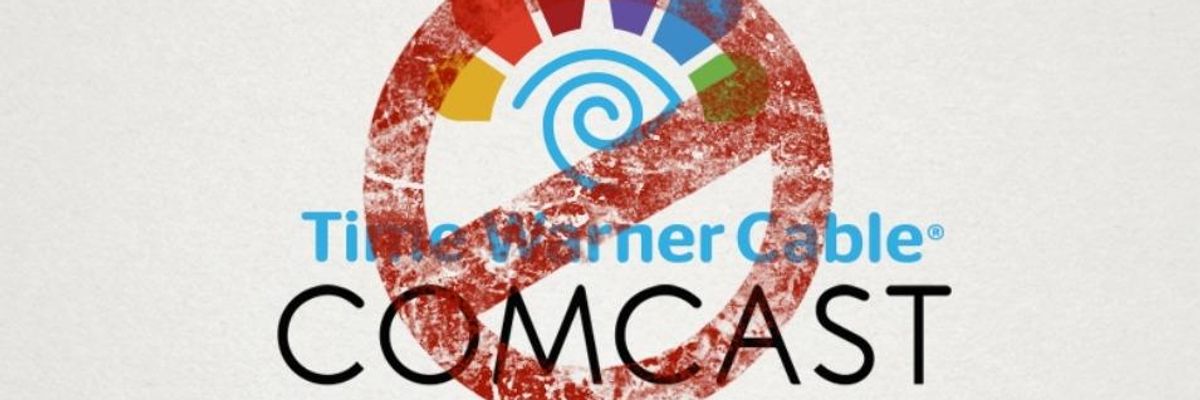With cable giant Comcast still hoping to receive a federal blessing for its bid to acquire Time Warner Cable, currently its largest rival, the lobbying blitz is in full swing to sway lawmakers and federal regulators that the mega-merger will not, as critics charge, negatively impact consumers by further monopolizing an already highly-concentrated sector.
Known for having one of the largest, most aggressive, and well-organized lobbying machines in Washington, D.C., reporting from the New York Times on Monday indicates that in addition to direct influencing attempts, Comcast is relying on an army of outside organizations, trade organizations, community groups, and individuals to speak positively about the merger.
As the Timesreports:
The letters have come from all around the United States -- from the Nutmeg Big Brothers and Big Sisters in Connecticut, the Houston Area Urban League and even the Dan Marino Foundation in Fort Lauderdale, Fla. -- some praising the Comcast Corporation, others urging the federal government to stand aside and approve Comcast's proposed takeover of Time Warner Cable.
The argument has been reinforced by a blitz of academic papers from groups like the International Center for Law and Economics in Portland, Ore. More endorsements have come in from elected officials like Gov. Phil Bryant, a Republican of Mississippi, and Fred Crespo, a Democratic state representative in Illinois.
"The merger will not hinder competition but will bring better technology to more consumers," Mr. Bryant said.
But there is a common element to dozens of these appeals: The senders received money from Comcast in recent years, either as a charitable donation, corporate support or a political contribution, records show.
Ultimately the merger will have to receive approval from the Federal Communications Commission, but those who oppose the further concentration of Comcast's market share have been running a successful campaign against the deal by leaning on the people who so far seem to be voicing the most reasonable objections: cable consumers themselves.
As it turns out, widely-shared experiences of inadequate service and a history of customer complaints are winning the argument against the claim, pushed by Comcast and Time Warner, that bigger would mean better.
On the other side, as former lobbyist Juleanna Glover told the Times, Comcast and its lobbying team "have had an extremely hard time coming up with a simple, clean message that advocates of the deal can understand and carry forth."
Meanwhile, opponents of the merger, like the consumer advocacy group Free Press, have been consistently able to show that while the money may be on Comcast's side, simple messaging--including op-eds with titles like "Horrible, Evil, Terrible Comcast"--continue to receive the backing of millions of cable users from across the nation who don't want to see the two largest cable companies join forces.
As field organizer Mary Alice Crim recently explained, Comcast has such a deplorable track record with customers that her group's primary strategy is simply to collect their complaints all in one place.
"There are so many Comcast horror stories," wrote Crim, "and we want to get them to decision-makers before it's too late."
As one customer, identified as Charles Neely from Grain Valley, Missouri, said of the cable giant: "Comcast is absolutely the worst company I can think of. I have had their service for years because they are the only cable company available to me. Their prices are insane. We do not need one less cable company to make one huge one even bigger. We need more competition, not less."
